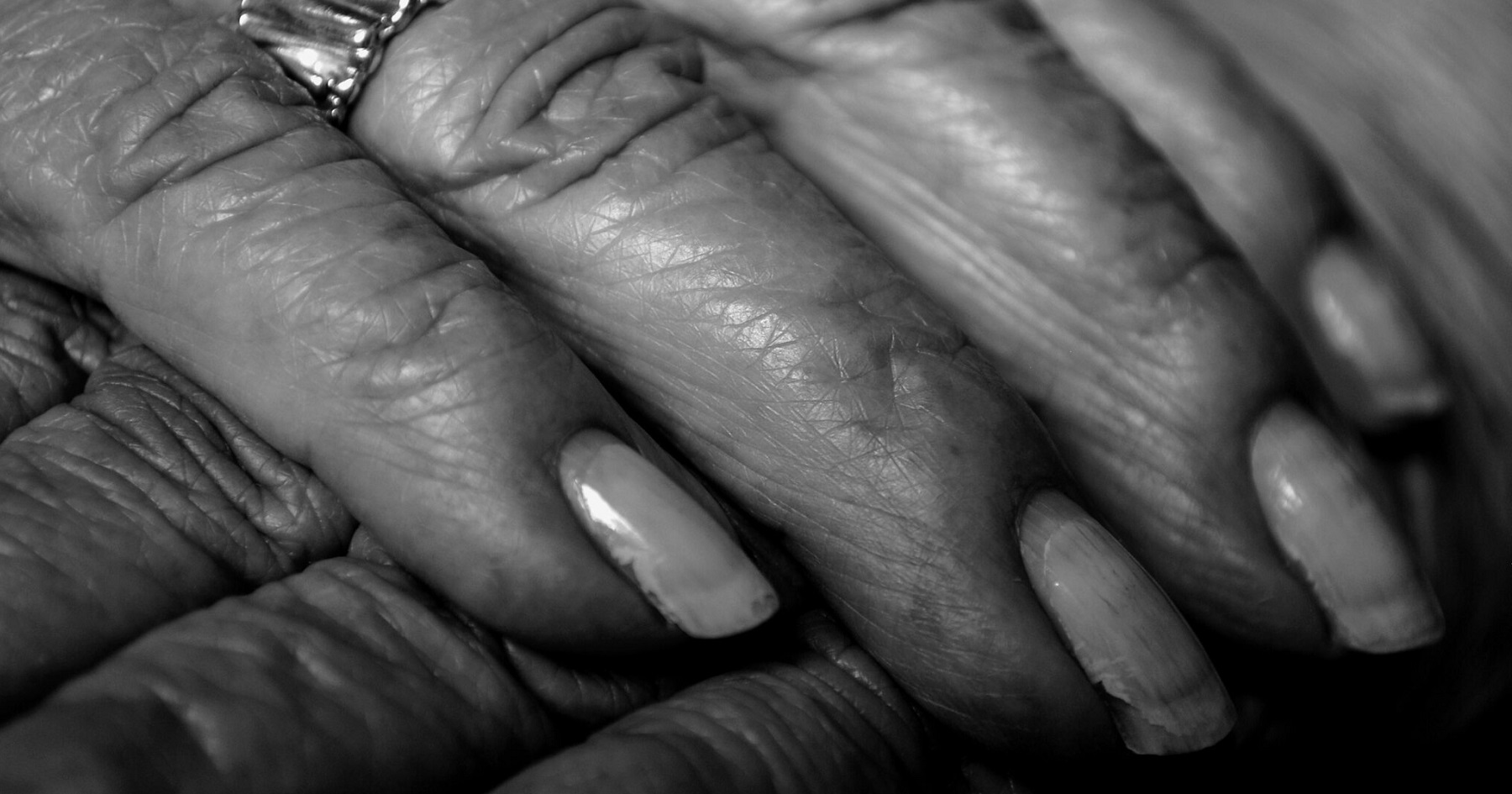Suppertime in the residence, the corridors relatively quiet. This is the hour between the coming and going of visitors. The staff are under less pressure; people’s movements and voices are less tense. Along the wide and cheerfully lit corridors some people are sitting in chairs. Four very elderly folk eat slowly and deliberately, gazing out of a large window, thinking their own thoughts.
A little further away I see the couple I have come to visit. They too are elderly. She is sitting in a wheelchair, he on a chair in front of her. He has taken off his jacket because he has all the time in the world for this visit. It isn’t an hour taken from more important things in his life. This is his life.
She is weak and he has come, as he regularly does, to share his evening meal with her. Lovingly and gently, he is helping her to eat. To avoid seeming to be feeding a child, he is quietly chatting to her in their native Chinese, letting her hear the familiar sound of their many decades together. His actions embody that loving familiarity that pierces our dimmed senses when nothing else will.
Later, when I come back along the corridor, they are still there. By this time, he has produced a small jar of food he has brought her from home, and they are sharing it. They could be in their own home, so oblivious are they of others and so unselfconscious. Probably, in her own mind, she is indeed at home. However, I shall never know that.
But there is something I do know as I walk down the stairs of the hospital, reflecting on my two elderly parishioners. I know what Saint Paul said in a reflection he once did on the nature of love. The words are very simple, but they will last for ever: “[Love] bears all things… Love never ends.” (1 Corinthians 13:7-8)




